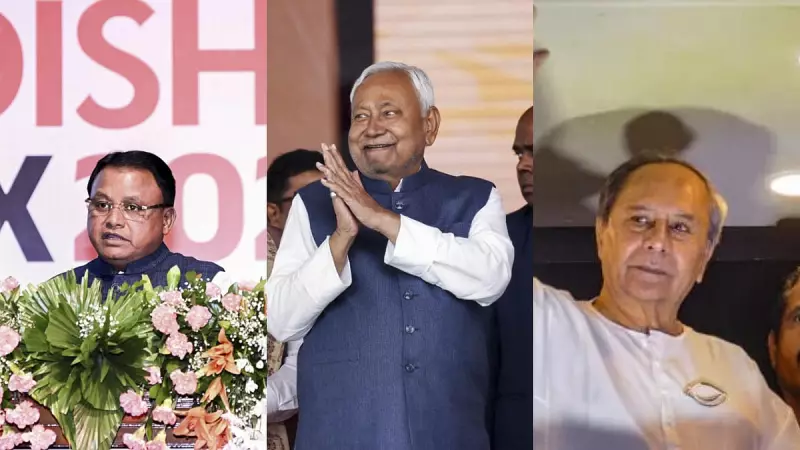
Historic Swearing-In Ceremony Marks New Era for Bihar
In a significant political development, Nitish Kumar was sworn in as the Chief Minister of Bihar on Thursday, following the decisive victory of the BJP-led NDA alliance in the 2025 Bihar Assembly Elections. The ceremony, attended by prominent political leaders and dignitaries, marks the beginning of a new chapter in Bihar's governance.
National Leaders Extend Congratulations
The political corridors across India resonated with congratulatory messages for the newly appointed Chief Minister. Odisha Chief Minister Mohan Charan Majhi and Biju Janata Dal (BJD) chief Naveen Patnaik were among the first prominent leaders to extend their warm wishes to Nitish Kumar.
In his statement, CM Majhi emphasized that the overwhelming mandate received by the BJP and NDA in the Bihar elections clearly reflects the people's trust in principled, people-centric governance. This endorsement from the Odisha CM highlights the national significance of Bihar's political outcome and the recognition of Nitish Kumar's leadership capabilities.
Decisive Mandate for Development-Focused Governance
The 2025 Bihar Assembly Elections witnessed a remarkable performance by the NDA coalition, with voters across the state's 243 constituencies expressing their confidence in the alliance's development agenda. The election results, declared constituency-wise across regions from Valmiki Nagar to Jhajha, demonstrated a clear preference for stable and experienced leadership.
Political analysts suggest that the victory margin indicates the electorate's appreciation for Nitish Kumar's track record in governance and their expectation of continued development initiatives. The swearing-in ceremony, held on November 20, 2025, sets the stage for the implementation of the NDA's vision for Bihar's progress.
As the new government takes charge, all eyes will be on the administration's ability to deliver on its promises and maintain the trust that millions of Bihar's residents have placed in their leadership. The congratulatory messages from across party lines suggest a hopeful beginning for collaborative governance in the state.





